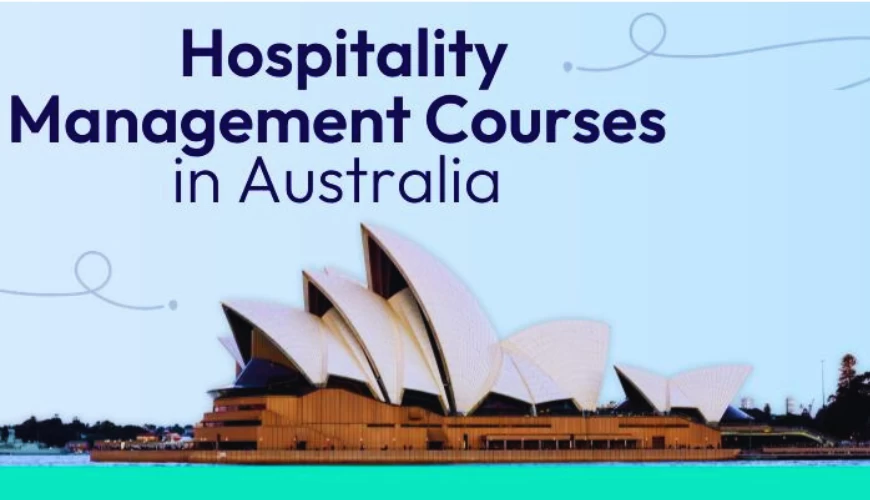Best Diploma Courses in Australia for International Students
Australia is renowned for its world-class education and inclusive atmosphere, and international students are drawn to one-year and two-year diploma courses. These programs serve as pivotal pathways, providing specialized skills, industry insights, and a vibrant Australian experience. Explore the best diploma courses in Australia for international students, ranging from Information Technology to Business Management, offering a unique blend of efficiency and comprehensive learning.
One-Year Diploma Courses in Australia
The one-year diploma courses in Australia have emerged as a compelling choice for international students seeking a focused and efficient educational pathway. These programs are designed to provide a quick yet comprehensive learning experience, allowing students to acquire specific skills and knowledge in a shorter timeframe compared to traditional degree programs. The efficiency of one-year diploma courses makes them particularly attractive to those who wish to enter the job market promptly.
Two-Year Diploma Courses in Australia
While one-year diploma courses offer quick entry into the job market, two-year diploma programs provide a more in-depth exploration of the chosen field. These longer-duration courses allow students to delve deeper into their studies, gaining a thorough understanding of the subject matter. For example, if you want to be a civil construction manager then a Two-year advanced diploma of civil construction design PR pathway course at Norton Institute is ideal for those seeking a more comprehensive educational experience and a broader skill set.
Eligibility Requirements to Study Diploma Courses in Australia
To enroll in a one-year or 2-year diploma course in Australia, international students typically need to meet the following admission requirements:
Academic Qualifications: A high school diploma or equivalent qualification is generally required, with some programs having specific subject prerequisites.
English Proficiency: For IELTS, a common requirement is an overall band score of 5.5 to 6.5, depending on the institution, program and PTE Academic scores may range from 42 to 65.
Visa Requirements: An appropriate student visa is mandatory, with requirements varying by course and institution.
Health Insurance: Overseas Student Health Cover (OSHC) is mandatory to cover healthcare expenses during the stay.
Financial Support: Applicants must demonstrate financial capacity to cover tuition fees, living expenses, and other costs.
How much does it cost to study a diploma course in Australia?
The cost of studying a diploma course in Australia for international students can vary depending on factors such as the institution, the specific program, and the duration of the course. On average, international students can expect to pay between AUD 15,000 and AUD 30,000 per year for diploma courses. However, it's crucial to note that this is a general estimate, and the actual cost may be higher or lower depending on the chosen field of study and the reputation of the educational institution.
Additionally, students should consider other expenses such as accommodation, living costs, textbooks, and health insurance. These costs can contribute significantly to the overall budget. Many institutions provide cost-of-living estimates to help students plan their finances accurately.
Top Universities in Australia for Diploma Courses
Australia is home to several prestigious universities offering excellent diploma programs. Some of the top universities renowned for their quality education and diverse diploma & vocational courses include:
University of Melbourne: Known for its comprehensive diploma programs in various fields, the University of Melbourne is consistently ranked among the top universities globally.
Australian National University: ANU offers a range of diploma courses with a focus on academic excellence and research-oriented learning.
Norton Institute: The Norton Institute is esteemed for its innovative approach to diploma courses across various disciplines. The institute is well-respected within the Australian vocational education and Training landscape. It is dedicated to fostering critical thinking and practical skills, ensuring that graduates are well-equipped for success in their chosen fields.
University of New South Wales: UNSW offers industry-relevant diploma programs, preparing students for successful careers in their chosen fields.
University of Sydney: Renowned for its vibrant campus and high-quality education, the University of Sydney provides diverse diploma options in line with industry needs.
University of Queensland: UQ is recognized for its innovative diploma courses across disciplines and a commitment to fostering critical thinking and practical skills.
Difference Between Diploma Courses Vs PG Diploma Courses
Understanding the distinction between diploma courses and postgraduate (PG) diploma courses is essential for prospective students:
Diploma Courses: These are generally undergraduate-level programs that provide foundational knowledge and practical skills in a specific field. Diplomas are suitable for students seeking entry-level positions in their chosen industries.
PG Diploma Courses: Postgraduate diploma courses are more advanced and specialized, often requiring a prior degree for admission. These programs offer in-depth knowledge and may include research components. PG diplomas are designed for individuals looking to enhance their expertise in a particular area and advance their career prospects.
While both diploma and PG diploma courses contribute to skill development and career advancement, the level of depth and specialization is typically greater in postgraduate programs.
Job Opportunities & Career Scope for Diploma Graduates in Australia
Completing a diploma course in Australia opens up a range of job opportunities in various sectors for both Local and international students. The career scope for diploma graduates is diverse, and it includes:
Information Technology: Graduates can pursue roles in programming, cybersecurity, web development, and networking.
Business and Management: Opportunities exist in business operations, management, and administration roles.
Hospitality and Tourism: Graduates can explore careers in hospitality management, travel, and tourism-related industries.
Healthcare: Diploma holders in healthcare fields, such as nursing and aged care, can find rewarding jobs in the healthcare sector.
Engineering: Various engineering diploma programs like the Advanced Diploma of Civil Construction Design pave the way for careers in civil, mechanical, electrical, and other engineering specialties.
Design and Creative Arts: Graduates in design and creative arts can pursue roles in graphic design, interior design, animation, and related fields.
In conclusion, choosing diploma courses is a strategic step for international students, offering a blend of efficiency, affordability, and industry relevance. With the right guidance and support, this educational journey promises not only academic growth but also a memorable cultural experience in the vibrant Australian landscape.

























